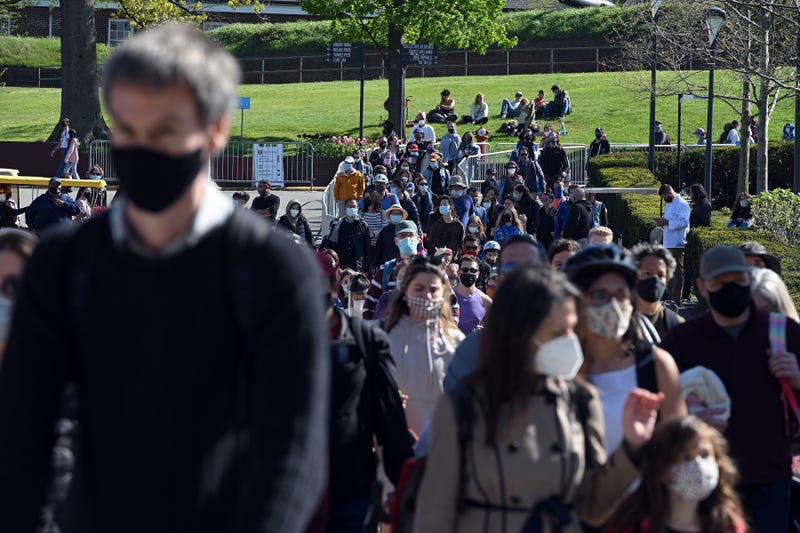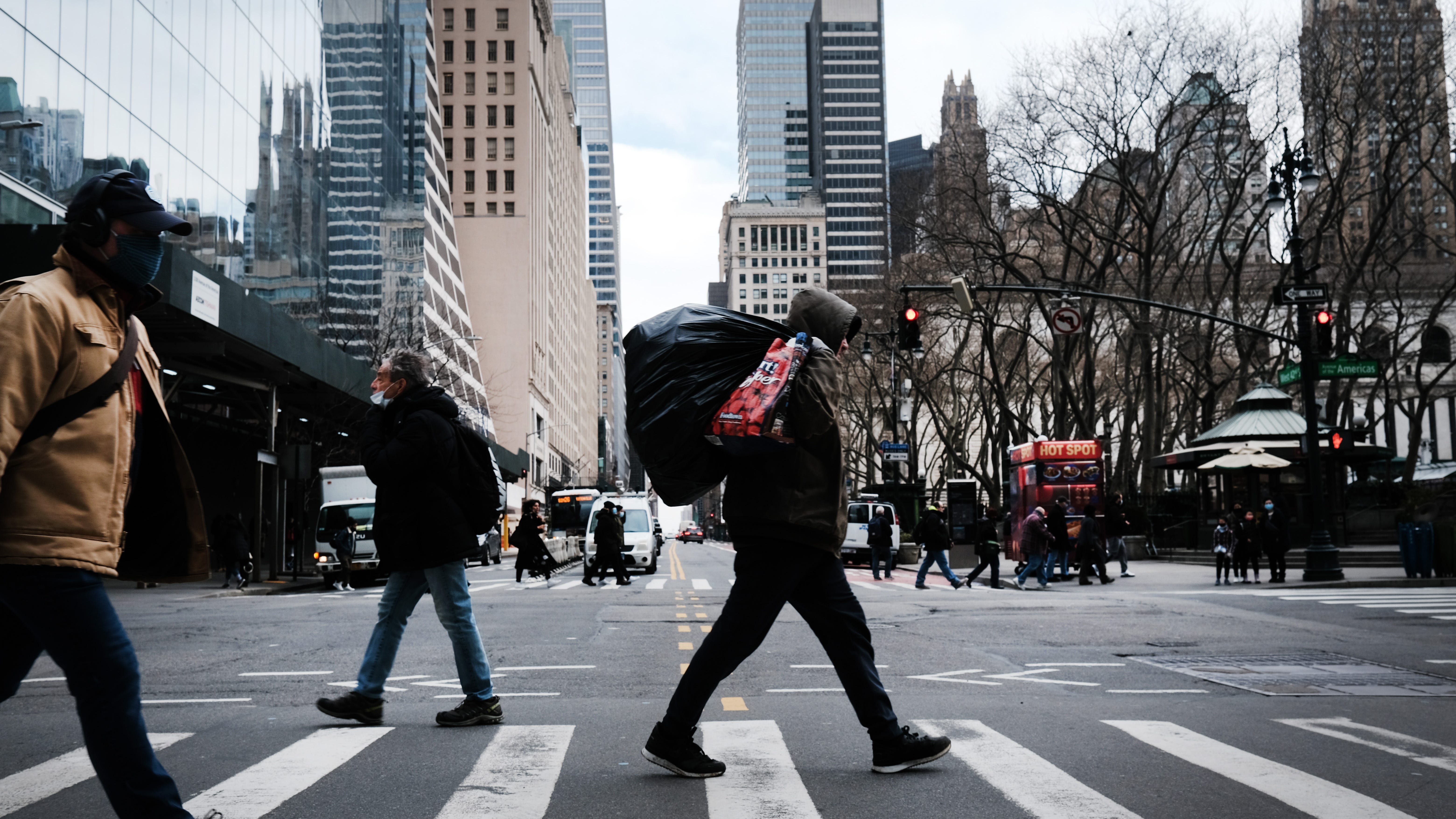
NEW YORK (1010 WINS) – The coronavirus variant first identified in New York City does not appear to cause more severe disease or increase the risk for reinfection after vaccination, the Centers for Disease Control said Wednesday.
The B.1.526 variant was first identified in upper Manhattan in November and its prevalence “has increased sharply since mid-January 2021,” the CDC said in a report published online.
By April 5, the variant accounted for 40% of all city COVID-19 cases sequenced by two laboratories.
While the “proportional increase in B.1.526 infections suggests that this variant might be more transmissible” than other strains, preliminary data suggests it “does not lead to more severe disease or increased risk for infection after vaccination,” the CDC said in the report.
Dr. Jay Varma, Mayor Bill de Blasio’s senior adviser for public health, said in March that B.1.526 was a "variant of interest" that officials were closely monitoring.
“Our preliminary analysis does not show that this new strain causes more severe illness or reduces the effectiveness of vaccines,” Varma said at the time.

